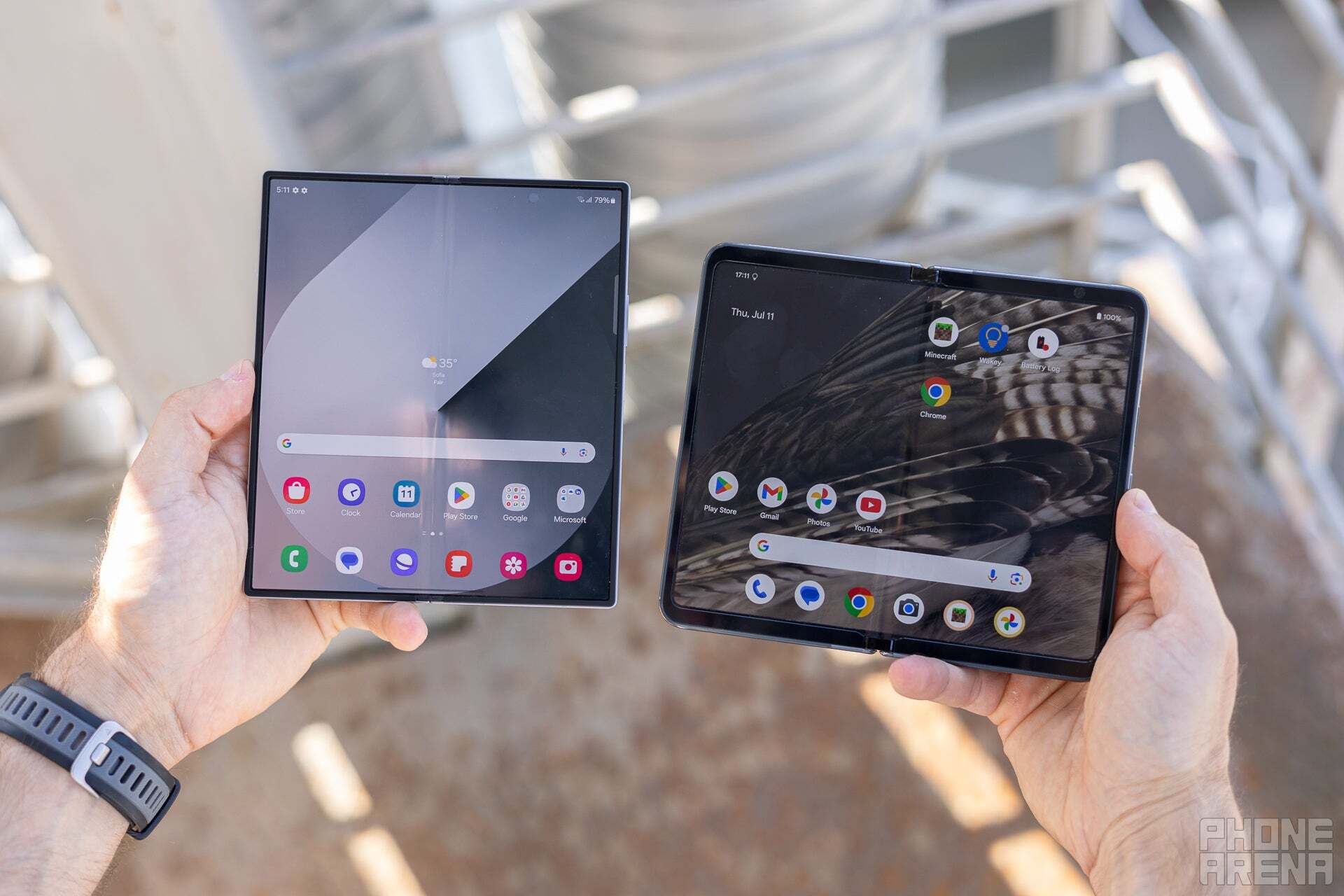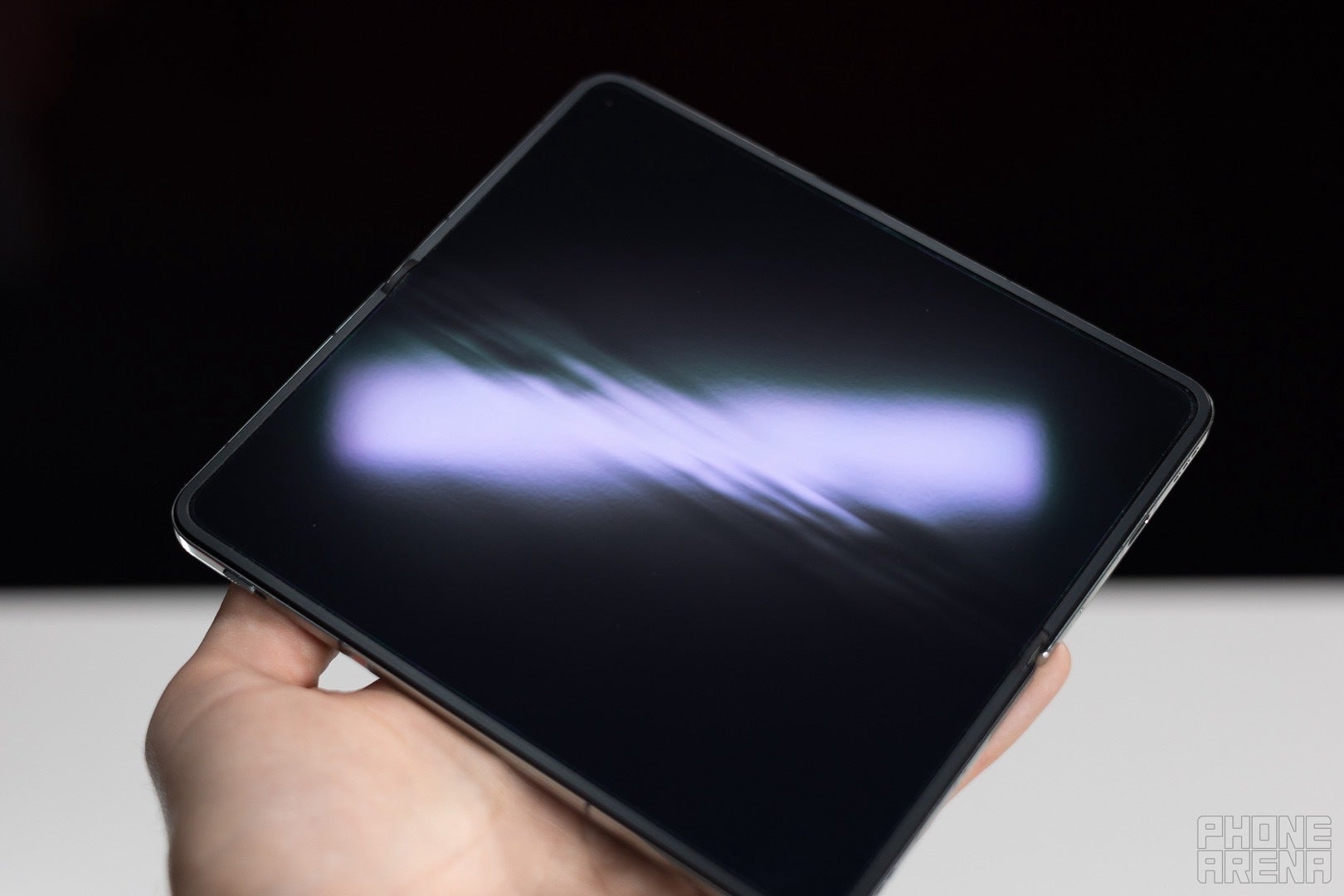OnePlus Open | Image credit — PhoneArena
Let’s face it, the crease on foldable phones has been a bit of an eyesore for some folks. It’s that little line right in the middle of the screen where the phone folds, and it’s been a sticking point for those who are on the fence about jumping into the foldable world. We have seen Google’s upcoming Pixel 9 Pro Fold already unboxed, and the crease is clearly there. But is the crease really that big of a deal, or is it just a minor inconvenience in the grand scheme of things? Let’s dive in and explore the crease conundrum, considering different foldable brands and how their creases have been received.Different brands have tackled the crease issue with varying degrees of success. Samsung, a major player in the foldable market, has made significant strides in minimizing the crease on its newer models like the Galaxy Z Fold 6 and Z Flip 6. While it’s still noticeable under certain lighting conditions, it’s far less pronounced than on earlier generations.

Other brands like Motorola and OnePlus / Oppo have also made efforts to reduce the crease’s visibility, though some users still find it somewhat distracting. It seems that the crease, while improving, remains a point of contention for some potential foldable adopters.


Foldables: The pros
- Bigger screen real estate: Foldables offer a significantly larger screen when unfolded, making them ideal for multitasking, watching videos, and gaming.
- Portability: Despite the larger screen size, foldables can still be compact when folded, making them easier to carry in pockets or bags.
- Innovation factor: Foldables are still a relatively new technology, and owning one can be a conversation starter and a symbol of embracing the cutting edge.
Foldables: The cons
- The crease: As we’ve discussed, the crease can be a visual distraction for some users.
- Durability concerns: Foldables are generally more delicate than traditional smartphones, and their hinges and screens may be more susceptible to damage.
- Price: Foldables are typically more expensive than their slab counterparts.
Slab smartphones: The pros
- Familiarity: Most people are already comfortable with the traditional smartphone form factor.
- Durability: Slab phones are typically more robust and less prone to damage.
- Price: Slab phones offer a wider range of price points, including more affordable options.
Slab smartphones: The cons
- Limited screen size: Traditional smartphones have smaller screens, which can be less ideal for multitasking and media consumption.
- Lack of innovation: Slab phones can feel a bit stagnant compared to the exciting new possibilities offered by foldables.
The good news is that foldable technology is constantly evolving. As creases become less noticeable and prices become more competitive, we may see more people embracing the fold in the future. Until then, the crease remains a fascinating point of debate in the ever-evolving world of smartphones.
Whether you are team crease or team slab, there’s no denying that the foldable revolution has brought a new level of excitement and innovation to the mobile tech landscape. So, what will it be for you? Will you embrace the fold or stick with the tried and true? The choice is yours.
👇Follow more 👇
👉 bdphone.com
👉 ultraactivation.com
👉 trainingreferral.com
👉 shaplafood.com
👉 bangladeshi.help
👉 www.forexdhaka.com
👉 uncommunication.com
👉 ultra-sim.com
👉 forexdhaka.com
👉 ultrafxfund.com
